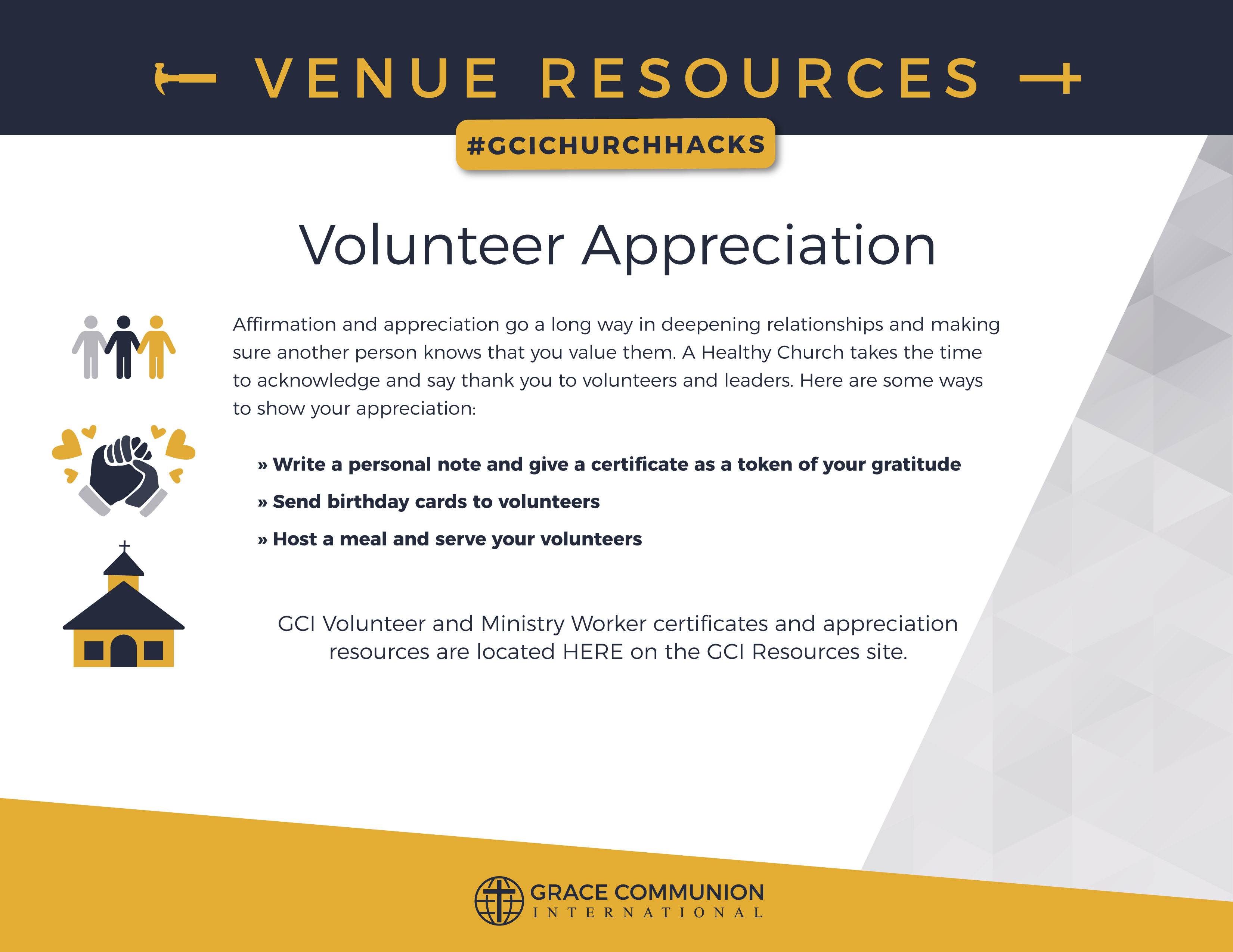Sermon for September 29, 2019
Readings: Jeremiah 32:1-3, 6-15 • Psalm 91:1-6, 14-16 • 1 Timothy 6:6-19 • Luke 16:19-31
This week’s theme is Our Hope is in God. The Psalmist reminds us to dwell in the shelter of the Almighty and he will provide what we need. Paul exhorts Timothy to put his hope in God, not in riches and earthly possessions. Luke shares Jesus’ parable of Lazarus and the rich man. The wealth and power of the rich man did not help him once he died. Rather, the “unseen one” who depended on God was in the presence of God. The sermon is based on the prophet Jeremiah’s purchase of land while he was under house arrest and Israel was in exile. It didn’t make sense, but God was giving him, and Israel, hope for the future.
Children’s church resources: https://sermons4kids.com/
The Time Capsule of Hope
Jeremiah 32:1-3a, 6-15
In the borough of Queens, New York, there is a neighborhood called Flushing. In Flushing you will find Flushing Meadows-Corona Park, the location of the 1939-1940 World’s Fair. A highlight of the World’s Fair was the “Immortal Well.” Fifty feet underneath this well is buried the 1938 time capsule.
In this capsule, which is made of cupaloy—a metal created specifically for the capsule—are the items of everyday life in 1938. A Sears and Roebuck catalog, a pack of Camel cigarettes, a dollar in change and dozens of books on microfilm were enclosed. This idea was to tell the future (in the year 6939) how we lived, how we expressed ourselves, how we were human.

Illustration: Share a time you made a time capsule or ask if any members made a time capsule and what they put in it.
Many of us at one time or another were involved in making a time capsule—maybe in a coffee can back our school days, or a more formal time capsule. In it we put little vestiges of life to tell generations ahead that we were here and what life was like.
You might say Jeremiah does the same thing in this odd story from his life. He makes an act of hope to tell future generations that Israel was still around, but most of all to tell his current generation that they are people of hope.
Let’s look at the context of where this story appears. Jeremiah has become a fixture in the culture of Jerusalem, having been a prophet whose career has already spanned twenty years. His message throughout is that God’s judgment will come on Israel, and that it will come through Babylon. At the same time, and just as durable, is Jeremiah’s promise of a hope and future for Israel.
Jeremiah was often called the “weeping prophet” and his book is laden with difficult-to-hear stories of judgment and destruction, a result of Israel’s unfaithfulness to God. Israel had taken up idol worship, even to the point of child sacrifice, and had abandoned the poor and vulnerable in their society. Hence God is restoring them to their identity as his people through judgment.
Right in the middle of these dark stories is this somewhat odd story of Jeremiah doing a land deal. Babylon is essentially at the gates of Israel when this occurs, and Jeremiah can probably see the smoke and fires of their encroaching camp through his window.
Because of Jeremiah’s unpleasant prophecies, the king put Jeremiah under house arrest. What a fascinating insight into power structure and status quo. How often have we locked up prophets? Throughout history, those who spoke truth, especially those who spoke it to powerful people, have been put on “house arrest” in one sense or another. There are the more dramatic of examples, like Dietrich Bonhoeffer, who was executed by Hitler. But there are many who are placed where their voice cannot be heard.
And so Jeremiah is on house arrest.
The word that came to Jeremiah from the Lord in the tenth year of King Zedekiah of Judah, which was the eighteenth year of Nebuchadnezzar. At that time the army of the king of Babylon was besieging Jerusalem, and the prophet Jeremiah was confined in the court of the guard that was in the palace of the king of Judah, where King Zedekiah of Judah had confined him. (Jeremiah 32:1-3a NRSV)
Of course, this didn’t slow him down when it came to being a prophet. Typical of the Old Testament prophet who stared down death and persecution regularly, Jeremiah kept acting out his vocation as God’s prophet, and this time through action. Here’s what he said:
The word of the LORD came to me: Hanamel son of your uncle Shallum is going to come to you and say, “Buy my field that is at Anathoth, for the right of redemption by purchase is yours.” Then my cousin Hanamel came to me in the court of the guard, in accordance with the word of the LORD, and said to me, “Buy my field that is at Anathoth in the land of Benjamin, for the right of possession and redemption is yours; buy it for yourself.” Then I knew that this was the word of the LORD. And I bought the field at Anathoth from my cousin Hanamel, and weighed out the money to him, seventeen shekels of silver. (Jeremiah 32:6-9 NRSV)
This is a fascinatingly strange move. Jeremiah is buying a field in a doomed area. This isn’t a “wise investment” from any angle. The place he’s buying is about to become a smoking battlefield when Babylon gets through with it. He’s been prophesying for two decades now that Babylon was going to level Jerusalem, and now when they’re right outside the gates, he buys real estate.
Then Jeremiah has his time capsule made. Or at least the equivalent of it:
Thus says the LORD of hosts, the God of Israel: Take these deeds, both this sealed deed of purchase and this open deed, and put them in an earthenware jar, in order that they may last for a long time. (Jeremiah 32:14 NRSV)
Putting legal documents in an earthenware jar was a common practice back then. It was like a safety deposit box. For generations afterward, the documents would be safe and available to prove something had been done. Yet Jeremiah knows full well that the documents will mean nothing very soon. The land, even if he owns it, will be a burnt-up nowhere. But it won’t stay that way forever.
That’s why this is more like a time capsule than a safety deposit box. This is not Jeremiah making an investment in the future as much as a statement about the future: We were here. We lived. And we believe that God will restore us.
You have to love the closing line of the scene:
Houses and fields and vineyards shall again be bought in this land. (Jeremiah 32:15 NRSV)
As the people of God, we are people of hope, we:
- Believe in hope
- Act in hope
- Live in hope
Believe in hope
Jeremiah did this famous land deal not because the prices were rock bottom or as a psychological defense mechanism against the reality of the invasion, but because he believed in the future.
Yes, times were terrible, but Jeremiah knew it wouldn’t be that way forever.
For behold, the winter is past; the rain is over and gone. The flowers appear on the earth, the time of singing has come (Song of Solomon 2:11-12)
In God’s world, the seasons change. Life may be dark right now, but the light of spring will come. Whatever it is you’re going through here and now, the flowers will appear again on the earth in time.
The devil is the ultimate absolutist. Every time something horrible happens—the diagnosis comes back or the marriage disintegrates—he’ll try to convince you that this is how life really is and always will be. He tries to convince us that the center doesn’t hold, and the only thing that’s “really real” is disappointment and loss.
But as the people of hope, we know that life is more complex than that. There are seasons of pain, for sure, but seasons of plenty and peace as well, and the best is yet to come.
In the end, Jesus’ death was temporary, and his resurrection was permanent. The hardest ice melts and makes water to help the wildflowers grow. As a forest burns, the heat of the fire opens seed pods allowing new growth to occur. As people of hope, we believe in hope. We don’t believe that war, pain, hardship, devastation, addiction, and sickness have the final word.
Act in hope
Thus says the LORD of hosts, the God of Israel: Take these deeds, both this sealed deed of purchase and this open deed, and put them in an earthenware jar, in order that they may last for a long time. (Jeremiah 32:14 NRSV)
Jeremiah acts in hope. He doesn’t just have some kind of airy, vague feeling about hope—he acts on it. He takes concrete action to show his hope. This isn’t an investment in his future—this is an investment in THE future. He’s pretty sure he won’t even be around to claim this land. He’s acting in hope.
There’s an ancient story of a rabbi named Akiva, who in A.D. 135 was tortured to death by the Romans. As they skinned him, the rabbi’s disciples could hear him singing the Shema: “Hear, oh Israel, the Lord your God is one…” This was the passage the Jewish people sang constantly as an act of identity. In the midst of his torture, right before his death, his biographers say he sang the Shema simply because it was “the time to sing the Shema.” He wasn’t crying out in a deathbed prayer, he wasn’t screaming religious rhetoric, he was praying because it was time to pray.
In his action, like Jeremiah, he showed that God’s math, God’s reality, doesn’t run by our rules. He acted in hope. Jeremiah acted in hope, leaning on God’s promise that “Houses and fields and vineyards shall again be bought in this land.”
Note: this is a good place for a story of a hopeful, counterintuitive action you took in a hard time. An example in my life: our family was going through a very difficult period and my dad and I toasted to better times. A small, symbolic act of hope.
Live in hope
As the people of hope, we live in hope. Hope is where set up camp. We believe in hope, we act in hope and someday we will live in the fullness of that hope. Listen to Paul as he writes to his disciple Timothy, which is another reading from our lectionary readings today.
Of course, there is great gain in godliness combined with contentment; for we brought nothing into the world, so that we can take nothing out of it; but if we have food and clothing, we will be content with these. But those who want to be rich fall into temptation and are trapped by many senseless and harmful desires that plunge people into ruin and destruction. (1 Timothy 6:6-9 NRSV)
Our hope is not in what we have, but in knowing who has us.
Paul continues to tell Timothy who to focus on:
He who is the blessed and only Sovereign, the King of kings and Lord of lords. It is he alone who has immortality and dwells in unapproachable light, whom no one has ever seen or can see, to him be honor and eternal dominion. (1 Timothy 6:15b-16 NRSV)
Paul talks often about living in hope—the life that is free of the trappings and addictions of the ego. Hope is in the life that finds sustenance in Christ and doesn’t require that sustenance from other people and pursuits that can never satisfy. Hope provides a life of freedom.
So Jeremiah puts the deed in an earthenware jar. And generations past have put symbols of their lives in time capsules and buried them. The cross of Jesus is the symbol that reminds us to believe in hope, act in hope, and live in hope. This is the message that hope—not hate, sin, or despair—will have the last word and “Houses and fields and vineyards shall again be bought in this land.”
From Speaking of Life
- Who are some of the “unseen” people today?
- What does it mean to see others as God sees them?
From the sermon: read Jeremiah 32:1-3, 6-15
- Have you ever buried a time capsule? What was in it?
- Meditate on verse 15: “For thus says the Lord of hosts, the God of Israel: Houses and fields and vineyards shall again be bought in this land.” What does it mean to you?
- In the sermon we talked about believing in hope and also acting on hope. What is the difference between the two?
- In the sermon, we talked about the temptation to believe that “real life” is only struggle and disappointment. How does it change our lives to believe that hope, joy, and love are the “real thing” and have the final word?
- Are there tools and faith practices that helped you through hard, “hopeless” times in the past? How can you cultivate this hope in other times in your life? How can you share your strength with others?
Quote for thought:
“The world is indeed full of peril, and in it there are many dark places; but still there is much that is fair, and though in all lands love is now mingled with grief, it grows perhaps the greater.” —J.R.R. Tolkien
Readings: Jeremiah 32:1-3, 6-15 • Psalm 91:1-6, 14-16 • 1 Timothy 6:6-19 • Luke 16:19-31
This week’s theme is Our Hope is in God. The Psalmist reminds us to dwell in the shelter of the Almighty and he will provide what we need. Paul exhorts Timothy to put his hope in God, not in riches and earthly possessions. Luke shares Jesus’ parable of Lazarus and the rich man. The wealth and power of the rich man did not help him once he died. Rather, the “unseen one” who depended on God was in the presence of God. The sermon is based on the prophet Jeremiah’s purchase of land while he was under house arrest and Israel was in exile. It didn’t make sense, but God was giving him, and Israel, hope for the future.
Children’s church resources: https://sermons4kids.com/
The Time Capsule of Hope
Jeremiah 32:1-3a, 6-15
In the borough of Queens, New York, there is a neighborhood called Flushing. In Flushing you will find Flushing Meadows-Corona Park, the location of the 1939-1940 World’s Fair. A highlight of the World’s Fair was the “Immortal Well.” Fifty feet underneath this well is buried the 1938 time capsule.
In this capsule, which is made of cupaloy—a metal created specifically for the capsule—are the items of everyday life in 1938. A Sears and Roebuck catalog, a pack of Camel cigarettes, a dollar in change and dozens of books on microfilm were enclosed. This idea was to tell the future (in the year 6939) how we lived, how we expressed ourselves, how we were human.

Illustration: Share a time you made a time capsule or ask if any members made a time capsule and what they put in it.
Many of us at one time or another were involved in making a time capsule—maybe in a coffee can back our school days, or a more formal time capsule. In it we put little vestiges of life to tell generations ahead that we were here and what life was like.
You might say Jeremiah does the same thing in this odd story from his life. He makes an act of hope to tell future generations that Israel was still around, but most of all to tell his current generation that they are people of hope.
Let’s look at the context of where this story appears. Jeremiah has become a fixture in the culture of Jerusalem, having been a prophet whose career has already spanned twenty years. His message throughout is that God’s judgment will come on Israel, and that it will come through Babylon. At the same time, and just as durable, is Jeremiah’s promise of a hope and future for Israel.
Jeremiah was often called the “weeping prophet” and his book is laden with difficult-to-hear stories of judgment and destruction, a result of Israel’s unfaithfulness to God. Israel had taken up idol worship, even to the point of child sacrifice, and had abandoned the poor and vulnerable in their society. Hence God is restoring them to their identity as his people through judgment.
Right in the middle of these dark stories is this somewhat odd story of Jeremiah doing a land deal. Babylon is essentially at the gates of Israel when this occurs, and Jeremiah can probably see the smoke and fires of their encroaching camp through his window.
Because of Jeremiah’s unpleasant prophecies, the king put Jeremiah under house arrest. What a fascinating insight into power structure and status quo. How often have we locked up prophets? Throughout history, those who spoke truth, especially those who spoke it to powerful people, have been put on “house arrest” in one sense or another. There are the more dramatic of examples, like Dietrich Bonhoeffer, who was executed by Hitler. But there are many who are placed where their voice cannot be heard.
And so Jeremiah is on house arrest.
The word that came to Jeremiah from the Lord in the tenth year of King Zedekiah of Judah, which was the eighteenth year of Nebuchadnezzar. At that time the army of the king of Babylon was besieging Jerusalem, and the prophet Jeremiah was confined in the court of the guard that was in the palace of the king of Judah, where King Zedekiah of Judah had confined him. (Jeremiah 32:1-3a NRSV)
Of course, this didn’t slow him down when it came to being a prophet. Typical of the Old Testament prophet who stared down death and persecution regularly, Jeremiah kept acting out his vocation as God’s prophet, and this time through action. Here’s what he said:
The word of the LORD came to me: Hanamel son of your uncle Shallum is going to come to you and say, “Buy my field that is at Anathoth, for the right of redemption by purchase is yours.” Then my cousin Hanamel came to me in the court of the guard, in accordance with the word of the LORD, and said to me, “Buy my field that is at Anathoth in the land of Benjamin, for the right of possession and redemption is yours; buy it for yourself.” Then I knew that this was the word of the LORD. And I bought the field at Anathoth from my cousin Hanamel, and weighed out the money to him, seventeen shekels of silver. (Jeremiah 32:6-9 NRSV)
This is a fascinatingly strange move. Jeremiah is buying a field in a doomed area. This isn’t a “wise investment” from any angle. The place he’s buying is about to become a smoking battlefield when Babylon gets through with it. He’s been prophesying for two decades now that Babylon was going to level Jerusalem, and now when they’re right outside the gates, he buys real estate.
Then Jeremiah has his time capsule made. Or at least the equivalent of it:
Thus says the LORD of hosts, the God of Israel: Take these deeds, both this sealed deed of purchase and this open deed, and put them in an earthenware jar, in order that they may last for a long time. (Jeremiah 32:14 NRSV)
Putting legal documents in an earthenware jar was a common practice back then. It was like a safety deposit box. For generations afterward, the documents would be safe and available to prove something had been done. Yet Jeremiah knows full well that the documents will mean nothing very soon. The land, even if he owns it, will be a burnt-up nowhere. But it won’t stay that way forever.
That’s why this is more like a time capsule than a safety deposit box. This is not Jeremiah making an investment in the future as much as a statement about the future: We were here. We lived. And we believe that God will restore us.
You have to love the closing line of the scene:
Houses and fields and vineyards shall again be bought in this land. (Jeremiah 32:15 NRSV)
As the people of God, we are people of hope, we:
- Believe in hope
- Act in hope
- Live in hope
Believe in hope
Jeremiah did this famous land deal not because the prices were rock bottom or as a psychological defense mechanism against the reality of the invasion, but because he believed in the future.
Yes, times were terrible, but Jeremiah knew it wouldn’t be that way forever.
For behold, the winter is past; the rain is over and gone. The flowers appear on the earth, the time of singing has come (Song of Solomon 2:11-12)
In God’s world, the seasons change. Life may be dark right now, but the light of spring will come. Whatever it is you’re going through here and now, the flowers will appear again on the earth in time.
The devil is the ultimate absolutist. Every time something horrible happens—the diagnosis comes back or the marriage disintegrates—he’ll try to convince you that this is how life really is and always will be. He tries to convince us that the center doesn’t hold, and the only thing that’s “really real” is disappointment and loss.
But as the people of hope, we know that life is more complex than that. There are seasons of pain, for sure, but seasons of plenty and peace as well, and the best is yet to come.
In the end, Jesus’ death was temporary, and his resurrection was permanent. The hardest ice melts and makes water to help the wildflowers grow. As a forest burns, the heat of the fire opens seed pods allowing new growth to occur. As people of hope, we believe in hope. We don’t believe that war, pain, hardship, devastation, addiction, and sickness have the final word.
Act in hope
Thus says the LORD of hosts, the God of Israel: Take these deeds, both this sealed deed of purchase and this open deed, and put them in an earthenware jar, in order that they may last for a long time. (Jeremiah 32:14 NRSV)
Jeremiah acts in hope. He doesn’t just have some kind of airy, vague feeling about hope—he acts on it. He takes concrete action to show his hope. This isn’t an investment in his future—this is an investment in THE future. He’s pretty sure he won’t even be around to claim this land. He’s acting in hope.
There’s an ancient story of a rabbi named Akiva, who in A.D. 135 was tortured to death by the Romans. As they skinned him, the rabbi’s disciples could hear him singing the Shema: “Hear, oh Israel, the Lord your God is one…” This was the passage the Jewish people sang constantly as an act of identity. In the midst of his torture, right before his death, his biographers say he sang the Shema simply because it was “the time to sing the Shema.” He wasn’t crying out in a deathbed prayer, he wasn’t screaming religious rhetoric, he was praying because it was time to pray.
In his action, like Jeremiah, he showed that God’s math, God’s reality, doesn’t run by our rules. He acted in hope. Jeremiah acted in hope, leaning on God’s promise that “Houses and fields and vineyards shall again be bought in this land.”
Note: this is a good place for a story of a hopeful, counterintuitive action you took in a hard time. An example in my life: our family was going through a very difficult period and my dad and I toasted to better times. A small, symbolic act of hope.
Live in hope
As the people of hope, we live in hope. Hope is where set up camp. We believe in hope, we act in hope and someday we will live in the fullness of that hope. Listen to Paul as he writes to his disciple Timothy, which is another reading from our lectionary readings today.
Of course, there is great gain in godliness combined with contentment; for we brought nothing into the world, so that we can take nothing out of it; but if we have food and clothing, we will be content with these. But those who want to be rich fall into temptation and are trapped by many senseless and harmful desires that plunge people into ruin and destruction. (1 Timothy 6:6-9 NRSV)
Our hope is not in what we have, but in knowing who has us.
Paul continues to tell Timothy who to focus on:
He who is the blessed and only Sovereign, the King of kings and Lord of lords. It is he alone who has immortality and dwells in unapproachable light, whom no one has ever seen or can see, to him be honor and eternal dominion. (1 Timothy 6:15b-16 NRSV)
Paul talks often about living in hope—the life that is free of the trappings and addictions of the ego. Hope is in the life that finds sustenance in Christ and doesn’t require that sustenance from other people and pursuits that can never satisfy. Hope provides a life of freedom.
So Jeremiah puts the deed in an earthenware jar. And generations past have put symbols of their lives in time capsules and buried them. The cross of Jesus is the symbol that reminds us to believe in hope, act in hope, and live in hope. This is the message that hope—not hate, sin, or despair—will have the last word and “Houses and fields and vineyards shall again be bought in this land.”
From Speaking of Life
- Who are some of the “unseen” people today?
- What does it mean to see others as God sees them?
From the sermon: read Jeremiah 32:1-3, 6-15
- Have you ever buried a time capsule? What was in it?
- Meditate on verse 15: “For thus says the Lord of hosts, the God of Israel: Houses and fields and vineyards shall again be bought in this land.” What does it mean to you?
- In the sermon we talked about believing in hope and also acting on hope. What is the difference between the two?
- In the sermon, we talked about the temptation to believe that “real life” is only struggle and disappointment. How does it change our lives to believe that hope, joy, and love are the “real thing” and have the final word?
- Are there tools and faith practices that helped you through hard, “hopeless” times in the past? How can you cultivate this hope in other times in your life? How can you share your strength with others?
Quote for thought:
“The world is indeed full of peril, and in it there are many dark places; but still there is much that is fair, and though in all lands love is now mingled with grief, it grows perhaps the greater.” —J.R.R. Tolkien


 The liturgical year is based on important milestones in the life of Jesus, as well as the anniversary of special events in the Christian Church.
The liturgical year is based on important milestones in the life of Jesus, as well as the anniversary of special events in the Christian Church. Sunday gatherings are times when we are blessed to enjoy being in God’s presence as we participate in worship with other beloved sons and daughters. It’s not that we aren’t in his presence in every moment of every day, but where two, three or more are gathered, he is with us in a special way. It’s a momentous family experience we share with the Triune God. Shouldn’t this reality inform the way we prepare for these priceless occasions?
Sunday gatherings are times when we are blessed to enjoy being in God’s presence as we participate in worship with other beloved sons and daughters. It’s not that we aren’t in his presence in every moment of every day, but where two, three or more are gathered, he is with us in a special way. It’s a momentous family experience we share with the Triune God. Shouldn’t this reality inform the way we prepare for these priceless occasions?






